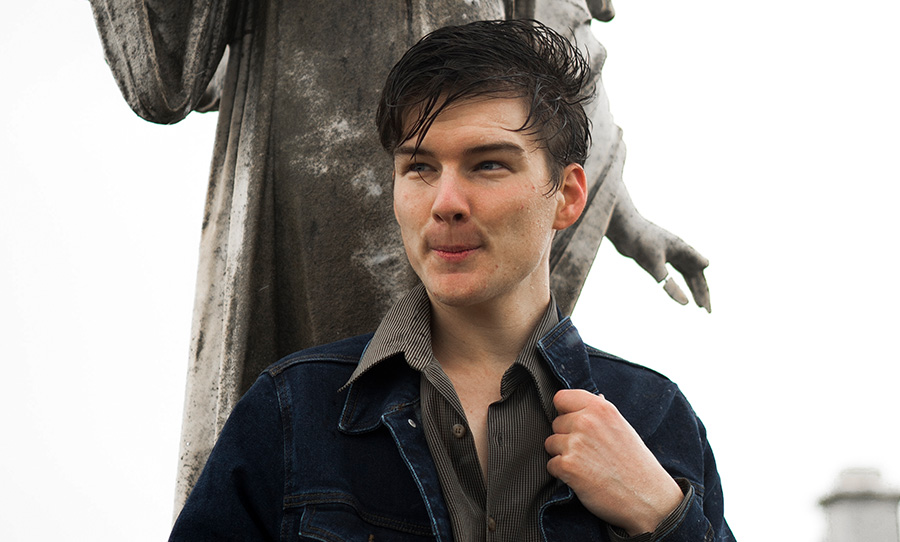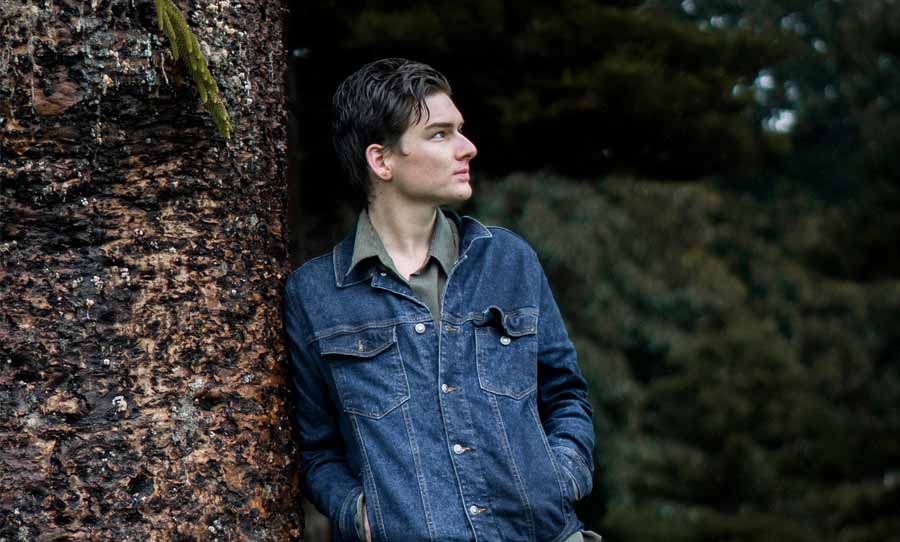Josh Oreo recently caught up with Flinders University film students to get to the heart of his debut self-titled EP.
They give us a track-by-track run-down of the release, and talk writing as expression, influences, sounds and working processes. Watch the video interview below.
Hot off the release of his debut self-titled EP, Josh Oreo delves deep on each track, his influences, writing processes, and much more.
Read a transcript of the video below:
Starcrawling
I feel a great need to tell people things and I don’t think we have access to that in day to day life. I mostly came to writing because of lots of pain in my life, just like anybody.
The first song is Starcrawling (no space). The song, I guess, is about a hatred for your own generation and an eagerness to just tell them outright how stupid they are.
Music For The Foreground
The second song is Music For The Foreground and the idea is that opposed to everything…all music being played in restaurants in the background very quietly, this is a song that is for the foreground and in your face and powerful.
I wasn’t always a music fan but I guess around 17 or thereabouts I took an interest in writing more so than anything. Mainly, I find I write because external reality is very disappointing to me and I think it just becomes an exercise of trying to survive life and maintain some sanity and really get across to people what you’re feeling… whether it’s in screeches or a sorrowful tone or in a happy tone. I think you’ve just got to get it across because you have to be heard by someone otherwise you go a bit mad.
White Line Rock Fever
You might do an autopsy on the person who’s singing it because they’ve come to the point in their life where they’re standing on the stage, they’ve got nothing left to give and so they’ve got to throw everything on the line.
Who has influenced your writing style?
A.E Housman. Who’s one of the only writers where I’ve really gone – wow- that’s how I feel but I would also include Morrissey in that because nobody has transformed my thinking like he has, it’s really changed me for the better to see what he’s written because it reflects things that I feel and we’ve all got to find things that reflect how we feel. The way that he delivered things it meant something. It made a great impression on me and I thought if other people could do that….that would be nice.
You’re My Pilot, Love
You’re My Pilot, Love is a softer note on the album. Pilot is metaphorical for somebody who you’ll follow…somebody who you’ll allow to direct the course of your life. Lead me astray, I don’t care. I’d like you to lead me astray.
How would you describe your sound?
Things that I wanted it to end up like: one of them is Years Of Refusal by Morrissey and another is Southpaw Grammar. Bands like Oasis, their Definitely Maybe. That stuff , you know, I like that sound.
What was your working process?
I went to the studio with Darren. Darren Mullan’s the producer. I went to him, I had all the words written. We had discussions about where we wanted it to go and then we got session players on the songs…all professional musicians and they’ve done a great job.
Reward For A Kill
And the final track, Reward For A Kill, it’s about the current climate of things socially and politically as well and how that compares to your own personal life – my own personal life, I should say – that causing decay within me, the singer and I think even if I’m malnourished and downtrodden I’ll still find a way to get through.



